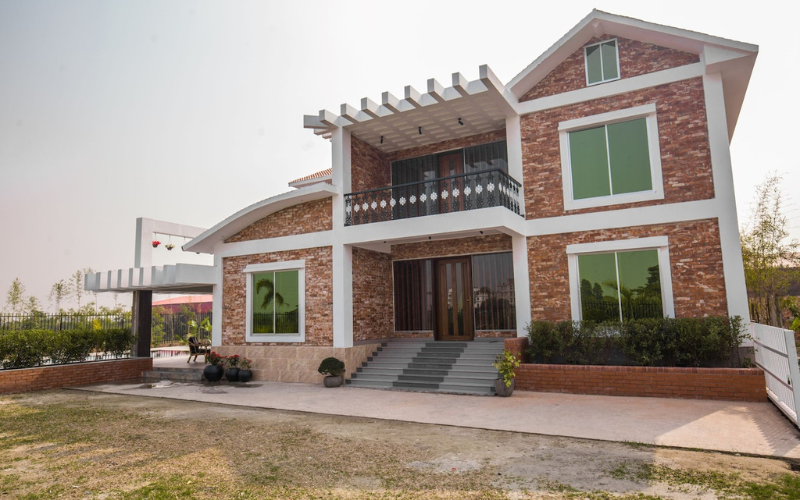BY KAYODE ADENIYI AND JELILAT LAWAL
The global affordable housing crisis has reached a critical juncture. As urban populations swell and housing demand skyrockets, the number of people living in inadequate conditions continues to rise. According to a 2022 United Nations report, over 1.6 billion people currently reside in substandard housing. This staggering figure is projected to increase, with an additional 3 billion people expected to need housing by 2030. In this context, the role of digital innovation is not just advantageous—it’s indispensable.
Technologies such as modular construction, 3D printing, smart home technologies, data analytics, and digital platforms are not merely enhancing the real estate sector; they are revolutionising it. These innovations are paving the way for more cost-effective, efficient, and scalable housing solutions, which are essential in addressing the mounting global demand. But as we embrace these technological advancements, it’s crucial to examine the interplay of financial mechanisms, particularly credit, and the evolving landscape of property technology (PropTech) in shaping the future of affordable housing.
The role of credit in affordable housing
Advertisement
Credit availability is the lifeblood of the real estate market, particularly when it comes to delivering affordable housing. Access to credit allows developers to finance large-scale construction projects, while it enables potential homeowners to purchase properties that might otherwise be beyond their reach. However, the availability of credit is not universal, and the challenge of securing loans—especially for low-income individuals—often impedes progress.
Many potential homeowners in emerging markets face a significant barrier: the inability to provide collateral. Traditional financial institutions are often reluctant to extend loans without substantial collateral, leaving many individuals and families in a precarious position. This scenario underscores the need for innovative financial solutions to bridge the gap between housing demand and credit availability.
Uncollateralised loans: A double-edged sword
Advertisement
Uncollateralised loans, which offer a solution for those lacking significant assets, come with their own set of risks and consequences. On one hand, these loans provide much-needed financial access to individuals who would otherwise be excluded from the housing market. On the other hand, they expose both lenders and borrowers to heightened financial risks.
For lenders, the absence of collateral increases the risk of default, which often leads to higher interest rates to offset potential losses. For borrowers, the burden of these higher interest rates can be crippling, potentially leading to a cycle of debt if repayment schedules are not met. The consequences of widespread defaults can ripple through the economy, affecting financial institutions and leading to tighter credit conditions. This could, in turn, stifle the development of affordable housing projects, exacerbating the very crisis these loans aim to alleviate.
Consider the case of microfinance institutions (MFIs), which often provide uncollateralised loans to low-income borrowers. While these loans have enabled many to improve their living conditions, they have also led to challenges. For instance, in India, the microfinance crisis of 2010 saw default rates soar, resulting in a severe liquidity crunch for MFIs and leading to stricter regulatory measures. This example illustrates the delicate balance that must be maintained when offering uncollateralised loans in the housing sector.
PropTech: Revolutionising real estate
Advertisement
Amid these financial challenges, PropTech is emerging as a transformative force in the real estate industry. PropTech, or property technology, refers to the use of digital innovations to improve the buying, selling, and management of properties. It encompasses a wide range of technologies, including smart home systems, virtual reality for property tours, blockchain for secure transactions, and data analytics for market insights. These technologies are not just enhancing the efficiency of real estate transactions—they are fundamentally altering the way properties are designed, constructed, and delivered.
Smart home technologies: Enhancing quality of life
As housing becomes more accessible, ensuring that homes are sustainable and efficient is equally important. Smart home technologies are increasingly being integrated into affordable housing to enhance energy efficiency, reduce utility costs, and improve residents’ quality of life. These technologies include smart thermostats, lighting systems, and appliances that can be controlled remotely and programmed for optimal energy use.
For example, in 2023, a Dutch housing association retrofitted affordable housing units with smart technologies, resulting in a 30% reduction in energy consumption and significantly lower utility bills for residents. The integration of smart home technologies not only makes housing more affordable by reducing ongoing costs but also contributes to environmental sustainability by lowering the carbon footprint of residential buildings. This dual benefit makes smart technologies a vital component of future affordable housing initiatives.
Advertisement
Addressing Challenges: The path forward
While the potential of digital technologies in affordable housing is immense, several barriers hinder their widespread adoption. High upfront costs, regulatory challenges, and a shortage of skilled labour are significant obstacles that must be addressed to fully realise the benefits of PropTech and other innovations.
Advertisement
High upfront costs
The initial investment required for technologies like modular construction and 3D printing can be prohibitively expensive. While these technologies offer long-term savings, the upfront costs can deter developers, particularly in markets where access to capital is limited. To overcome this barrier, strategic investments, regulatory reforms, and public-private partnerships are essential. Governments and private investors can support digital innovation by offering grants, subsidies, and tax incentives to offset initial costs. Additionally, financing models that spread the cost over the life of the project can make these technologies more accessible to developers.
Advertisement
Regulatory challenges
Regulatory frameworks often lag behind technological advancements, creating a challenging environment for the adoption of new construction methods and materials. Streamlining regulations and building codes to accommodate innovative technologies is crucial. Policymakers must work closely with industry stakeholders to develop regulations that support innovation while ensuring safety and quality standards are maintained.
Advertisement
Skilled labour shortage
The successful implementation of PropTech and other digital innovations requires a skilled workforce capable of operating and maintaining these technologies. However, there is currently a shortage of workers with the necessary expertise. To address this, governments and educational institutions should invest in training programs that equip workers with the skills needed for the digital transformation of the real estate sector. These programs should focus not only on technical skills but also on fostering a mindset of continuous learning and adaptation, which will be essential as technologies continue to evolve.
The future of affordable housing: A digital revolution
Digital innovation holds immense potential to transform the affordable housing sector. By leveraging technologies like modular construction, 3D printing, smart systems, data analytics, and digital platforms, we can create efficient, cost-effective, and high-quality housing solutions. These technologies are not just tools—they are catalysts for change, enabling us to build sustainable, inclusive communities that meet the needs of a growing global population.
However, the success of this digital revolution will depend on our ability to navigate the challenges that accompany it. Strategic investments, regulatory reforms, and a commitment to education and training are all necessary to ensure that the benefits of these innovations are realised on a global scale. As these technologies continue to evolve, they will play a crucial role in shaping the future of real estate and urban development, making affordable housing accessible to all.
Kayode Adeniyi is a proptech innovator with a strong focus on sustainable real estate development, environmental sustainability, and urban resilience. His work integrates digital innovation to advance sustainable practices within the real estate sector, contributing to more resilient urban environments.
Jelilat Ifedolapo Lawal is a fintech startup founder with a master’s degree in business management, operations & administration. She focuses on building tech solutions for emerging markets.
Views expressed by contributors are strictly personal and not of TheCable.








